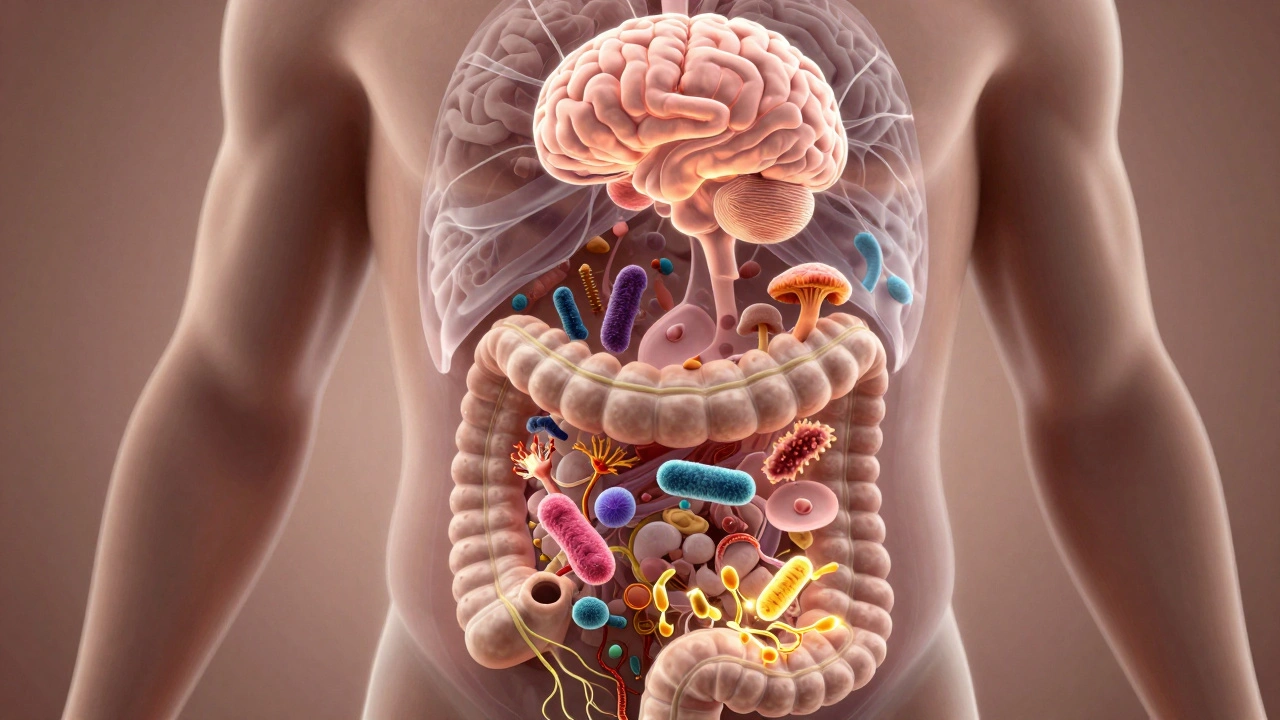Probiotics for Dogs: What They Do and How to Use Them
Want your dog to feel better fast? Probiotics are one of the simplest, low-risk tools that can help digestion, support immunity, and calm a nervous belly. They’re not magic, but used right they often make a noticeable difference—especially after antibiotics, during travel, or when loose stools show up.
Probiotics are live microbes that help keep the gut balanced. For dogs, that balance supports digestion, reduces gas and loose stool, and can even affect mood through the gut-brain connection. You’ll find probiotics in many forms: powders, chews, canned-food blends, and fermented foods. Always pick products labeled for dogs or vetted by your veterinarian.
Which strains and doses work best?
Look for canine-friendly strains like Enterococcus faecium (often SF68), Lactobacillus species, Bifidobacterium species, and some Bacillus strains. A product label should list strains and a CFU (colony forming units) number. Here are simple dosing guidelines many owners follow:
- Small dogs (<10 lb): about 1–2 billion CFU daily.
- Medium dogs (10–30 lb): about 2–5 billion CFU daily.
- Large dogs (>30 lb): about 5–10 billion CFU daily.
These are general targets. Some clinical products use higher doses for short periods—your vet will advise if your dog needs that.
When to give probiotics and what to expect
Use probiotics when your dog has loose stool, after a course of antibiotics, during stress (boarding, travel), or after diet changes. Puppies benefit from gentle, puppy-formulated probiotics during weaning. Expect mild changes in the first few days—sometimes a little gas as the gut adjusts. If diarrhea, vomiting, or lethargy gets worse, stop and call your vet.
Signs probiotics are helping: firmer stools, fewer accidents, improved appetite, and a brighter coat over weeks. If you don’t see improvement in 7–14 days, check with your vet—there may be an underlying issue that needs testing.
Pair probiotics with a good diet and prebiotics (fiber that feeds the good bacteria). Foods like plain pumpkin, some plain yogurts made for dogs, or supplements that include inulin or FOS can boost results. Avoid giving random human probiotics—formulations and doses often don’t match what dogs need.
Storage matters. Some strains need refrigeration; others are shelf-stable. Follow the label. Buy from reputable brands with clear ingredient lists and third-party testing when possible.
Want practical reading next? Check articles on nutrition and gut-health basics—topics like omega-3s for inflammation, smart snack ideas for a healthy gut, and how a steady breakfast helps digestion are great next steps. If you're unsure which product or dose fits your dog, call your vet. A quick chat can save time and worry, and get your dog back to feeling great.

How to Restore Your Gut Health After Antibiotics
Learn how to restore your gut health after antibiotics with proven steps: eat fermented foods, take the right probiotics, cut sugar, and support your microbiome with prebiotics and lifestyle changes.

Unlocking the Secrets of Gut Health
Discover the real secrets to gut health-how food, stress, and microbes shape your digestion, mood, and immunity. Learn what actually works to heal your gut naturally, without fads or supplements.

Gut Health and Brain Connection: The Gut-Brain Axis, Diet Tips, and Science
Your gut talks to your brain. Here’s the science and a practical 30‑day plan-food, sleep, stress, and smart probiotic use-to support mood, focus, and calm.

Optimizing Gastrointestinal Health: A Comprehensive Guide
In the pursuit of a healthy lifestyle, gastrointestinal health plays a pivotal role. This article explores practical strategies and easy-to-understand insights for maintaining a happy gut. It delves into the importance of diet, beneficial bacteria, and regular health checks to ensure a resilient digestive system. Concepts such as dietary choices, lifestyle adjustments and the significance of gut-brain connection are also discussed. By integrating these tips, readers can enhance their digestive health naturally and effectively.

Unlocking Gut Health Secrets: A Comprehensive Guide to Optimizing Digestive Well-being
This article dives deep into the fascinating world of gut health, providing a comprehensive understanding of how a balanced digestive system can lead to overall well-being. From exploring the complex ecosystem of the gut microbiota to offering practical advice on fostering a healthy digestive environment, this guide covers everything you need to know. Discover the significant impact of diet, lifestyle, and probiotics on your gut health and learn actionable tips for maintaining a happy tummy. Get ready to unravel the science behind gut health and take the first step towards a healthier, happier you.

Harnessing Probiotics for Optimal Digestive Health: Key Benefits and Implementations
Probiotics have become a focal point in discussions about digestive health and overall wellness. They are commonly known as 'good' bacteria that offer various health benefits, especially for the gastrointestinal tract. This article examines the crucial role of probiotics in maintaining and enhancing gut health, and how incorporating them into your diet can lead to improved digestion, enhanced immune function, and even mental wellness. Insights into the symbiotic relationship between probiotics and our body, as well as practical tips for harnessing their potential, are shared to guide readers towards a healthier gut flora.

Fascia Stretching: Unlock Your Body's Full Potential
Apr, 18 2025



